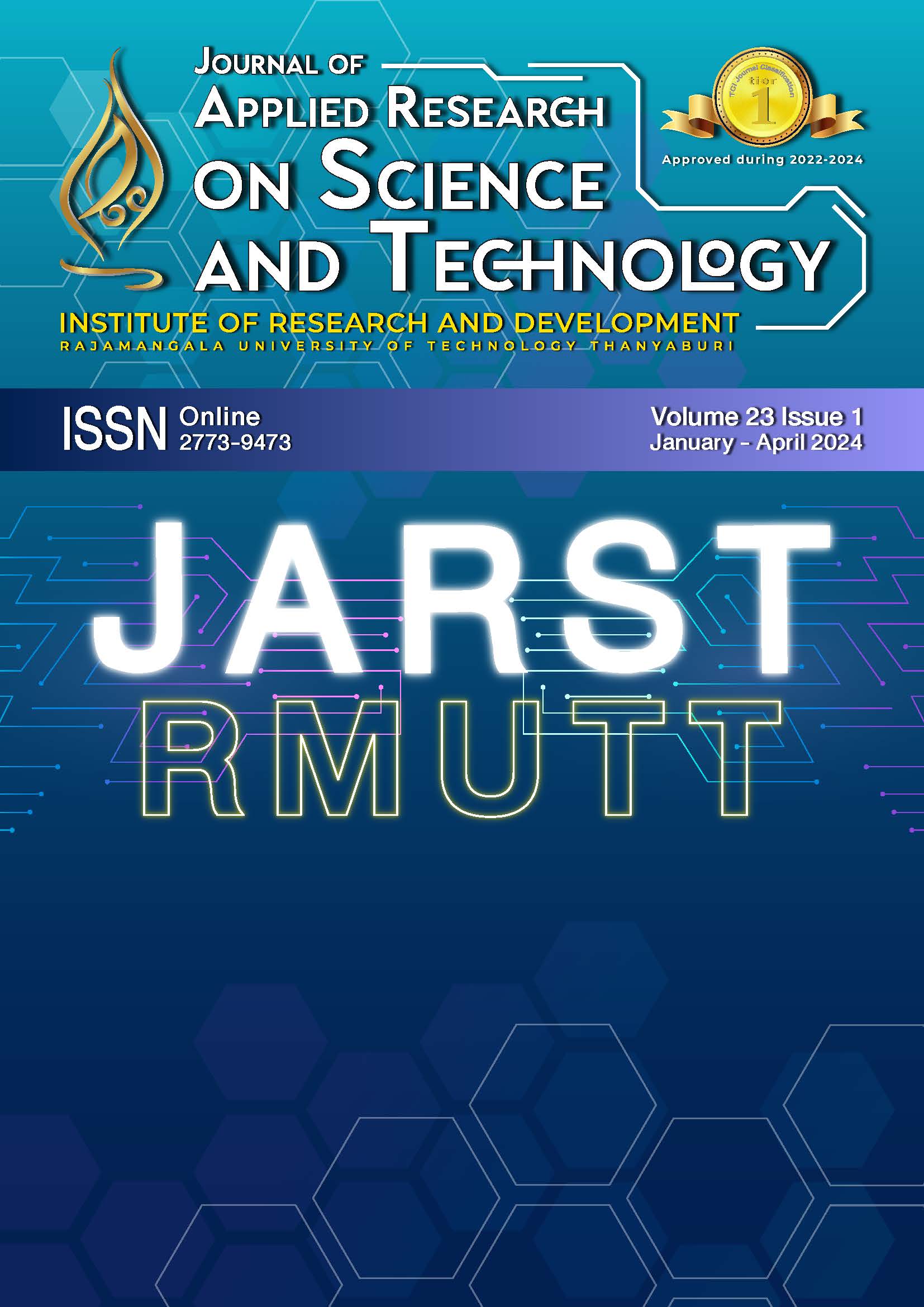The development of association rules for student performance analysis using FP-Growth algorithm as a guideline for multidisciplinary learning
Main Article Content
Abstract
This study aims to develop association rules for student performance analysis using the FP-Growth algorithm. The data used for developing the association rules comprised 107 student reports. The reports, voluntarily provided by 107 junior high school students, consisted of student achievement results across 8 subject areas: Thai Language, Mathematics, Science, Social Studies, English Language, Computing Science, Visual Arts, and Home Economics. The data was applied to developing association rules using the FP-Growth algorithm towards WEKA, a machine learning software. The research team designed the process consisting of the following 5 stages: data collection, data preparation, model formulation, model evaluation, and model application. After achieving the association rules, the research team applied them to the prototype development of a student performance analysis system for promoting students' academic excellence. The system could be operated by Android mobile phones. According to the research results, the association rules developed by the algorithm provided a confidence level of 92%, and a rule of 7 rules will be generated. The findings indicated the correlations between the subject areas, which shared similar individual students' academic achievements (≥ 80 scores). The association rules could be applied to the multidisciplinary curriculum planning, which benefited students and promoted academic excellence. For example, by applying Rule, it could be assumed that students who earned 80 scores or higher in the English subject would likely earn identical scores from their Thai Language class. Therefore, they could effectively learn to integrate English and Thai languages. To illustrate, students may be asked to translate song lyrics from English to Thai, serve as tourist guides or translators, or even give welcome speeches to foreign guests.
Article Details

This work is licensed under a Creative Commons Attribution-NonCommercial-NoDerivatives 4.0 International License.
References
Ministry of Education. National Education Act of B.E. 2542 and the Second and Third Amendments (B.E. 2545 and B.E. 2553), Relevant Laws, and Compulsory Education Act B.E. 2545. Bangkok: Office of the National Education Commission; 2007.
Dharmaraajan K, Dorairangaswamy MA. Analysis of FP-Growth and Apriori Algorithms on Pattern Discovery from Weblog Data. 2016 IEEE International Conference on Advances in Computer Applications (ICACA); 2016 Oct 24; Coimbatore, India: IEEE; 2017.
Gashaw Y, Liu F. Performance Evaluation of Frequent Pattern Mining Algorithms using Web Log Data for Web Usage Mining. 2017 10th International Congress on Image and Signal Processing, BioMedical Engineering and Informatics (CISP-BMEI); 2017 Oct 14-16; Shanghai, China: IEEE; 2018.
Faza S, Rahmat RF, Nababan EB, Arisandi D, Effendi S. The association rules search of Indonesian university graduate's data using FP-growth algorithm. 10th International Conference Numerical Analysis in Engineering, Banda Aceh, Indonesia; 2017 Aug 24-25; Banda Aceh, Indonesia: IOP Conference Series: Materials Science and Engineering; 2018.
Jongkasikit NN. An Application of FP-Growth Algorithm to Find Factors in Choosing to Study in the Faculty of Industrial Technology Lampang Rajabhat University. Industrial Technology Lampang Rajabhat University Journal. 2018;11(2):29-39.
Ashika KJ, Jagruthi MN, Nikhil N, Pooja S. Educational data analytics using association rule mining for student job prediction. International Research Journal of Engineering and Technology (IRJET). 2020;7(6):3979-84.
Han J, Kamber M, Pei J. Data Mining: Concepts and Techniques (The Morgan Kaufmann Series in Data Management Systems). 3rd ed. Morgan Kaufmann; 2011.
Sinsomboonthong S. An efficiency comparison in prediction of Khao Dok Mali 105 paddy rice classification with data mining techniques. Thai Science and Technology Journal (TSTJ). 2020;28(3):394-402.


